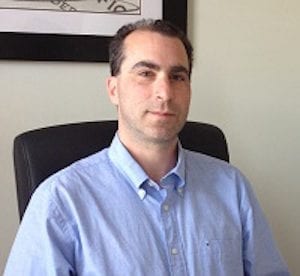Are you interested in learning more about creative, low cost, and yet highly effective ways to deliver educational experiences? If so, you’ll want to learn more about what we think has to be the “hippest” learning event in the world of continuing medical education, CMEpalooza.
For the past several years, Derek Warnick—a continuing healthcare education professional and founder of CMEpalooza, and Scott Kober—Principal at MedCaseWriter, a provider of medical writing services focused on the conceptualization and development of complex case studies—have held this free, online event aimed at individuals responsible for creating and delivering CME experiences—and they do it all for under $20 a year!
In this episode of the Leading Learning podcast, Jeff talks with Derek and Scott about the CMEpalooza experience, the (mostly free) technology behind it, and key points of advice for organizations who might be interested in pulling together a similar educational offering.
To tune in, just click below. To make sure you catch all of the future episodes, be sure to subscribe by RSS or on iTunes. And, if you like the podcast, be sure to give it a tweet!
Note: Derek Warnick and Scott Kober have been back on the Leading Learning Podcast since this interview aired. Be sure to also check out “10 Years of CMEpalooza with Scott Kober and Derek Warnick.”
Listen to the Show
Read the Show Notes
[00:18] – Thank you to Castle, which is the sponsor of the Leading Learning podcast for the second quarter of 2017. Castle is an accomplished full-services certification and licensure testing company that also offers its clients a variety of learning solutions capabilities. With an expert team of testing and instructional design professionals and a thirty year history of excellence in it’s field, Castle understands what it takes to develop and deliver quality learning and certification programs.
[01:10] – Highlighted Resource of the Week – Leading Learning newsletter – a way to share high-value resources we come across each month, packaged up into a brief email that you can read and digest quickly. If the podcast is “audio intelligence for learning leaders”, the newsletter is “inbox intelligence for learning leaders”. Get the details and sign up for this free resource at https://www.leadinglearning.com/newsletter/.
[01:42] – A preview of what will be covered in this podcast where Jeff interviews Derek Warnick and Scott Kober about their learning event, CMEpalooza.
[03:29] – An introduction to Derek and Scott.
[04:39] – Derek, who works in healthcare education for Pfizer, describes what an average day looks like for him there.
[05:16] – Scott, an entrepreneur who founded the company, MedCaseWriter, explains what took him down that path.
CMEpalooza
[06:08] – Derek talks about the name, “CMEpalooza” and the connection to Lollapalooza.
[06:54] – Who gets the credit for the idea behind CMEpalooza? Derek says he came up with the original idea a few years ago. In his profession, they have the annual conference, the Alliance for Continuing Education of Healthcare Professions. As part of that, you can submit abstracts but only some get chosen to present. This gave him the idea to create an offshoot conference where anyone could present. The first year, he ran it by himself but it was a lot to take on so he got Scott onboard after that.
[09:14] – For the uninitiated, what is CMEpalooza and what does the experience involve? Other than being an online event focused on medical education, what is somebody going to get if they sign up for this? Scott explains that CMEpalooza consists of two annual events, one in the spring and one in the fall. They are both full-day educational events, typically consisting of 1-hour sessions running from about 9AM-5PM. For each of the sessions they have a variety of topics and they try to get interesting panels together with different approaches to each of the sessions. Since it’s just the two of them, they can be more creative and have fun with it.
[11:19] – Derek adds they do their entire event using Google Hangouts in combination with their website (WordPress) where there’s a page that lists the next streaming session every hour throughout the day.
[12:49] – It is also noted CMEpalooza is completely free (to watch live and/or archived sessions). They only spend $18 a year, out-of-pocket to put on the event.
[13:50] – How precise a read do you have on how many people attend each year and what they’re getting out of it? Scott explains that with Google Hangouts you get a count of the number of computers logged in viewing the session (so this doesn’t account for multiple people watching from the same computer). One of the nice things about Google Hangouts is it’s synced with YouTube so all the sessions are automatically archived on YouTube.
[15:18] – In addition to Google Hangouts, Derek talks about some other tools that they use. In terms of marketing, they don’t have an email list but they use WordPress and their blog, as well as Twitter, with an event hash tag used throughout the year and then the day of as a way to ask questions and make announcements. They actually give three different options for people to be able to ask questions – tweeting, sending a text, or through Google Slides.
[17:34] – You’ve just recently completed the spring 2017 CMEpalooza – what were some of the big takeaways from this year and how did it compare to years previously? Scott shares that technology can be both an opportunity and a challenge but this year was probably their best year in terms of having a limited number of emergency hurdles to jump over. He says they are now to a point where most people are familiar with the technology and they are more savvy in walking them through their issues.
[19:26] – Derek agrees that the technology keeps getting better and better and he wants to stress that this is fairly easy for anyone to do as they are definitely not technology experts. For example, the way they get their faculty onto a session is simply by calling the Hangout, grabbing the link, and sending it in an email. Because they work in healthcare, Derek adds that one challenge has been around firewall issues but they’ve been able to overcome those issues, with each year getting better and easier to do. He also notes the audience seemed to be more engaged this year with more questions.
[21:37] – What do the two of you get out of putting on this event? Why do you do it? Scott shares a few reasons, the first being this is a fun sideline activity for him. Personally, it’s great marketing for himself and his business. He also says they get sponsors for their event so financially, they do make a little bit of money.
[23:27] – Derek shares that he started this initially when he had been laid off so it was a good way for him to stay involved. Now he does it because people seem to like it and he likes the niche audience they have developed. CMEpalooza also gives people an opportunity to further their education who may not typically have the same opportunities that others might. He adds that it isn’t a huge investment of their time, which makes it feasible to keep doing – and they prove a point that you don’t have to spend huge amounts of money in order to put on a conference with good content that people will appreciate.
[26:00] – If other organizations or individuals were interested in trying something like CMEpalooza for their profession, what are some of the key points of advice you would give? Derek recommends that whenever you’re using new technology, you need to test, test, test. One of the big things they always do is to get on the Hangout with each of their faculty in the weeks before their session just to familiarize everybody. Also note that it takes time to build an audience. They have been able to build a sort of personality and brand the event as a fun event. Scott adds that you shouldn’t be afraid to fail because no matter how well you plan, there will likely be some sort of a glitch – another benefit of keeping it as a fun and light event and not taking yourself too seriously. He also says faculty may be willing to say more in this type of setting because it isn’t as formal as typical conferences. In addition, most of their sessions are typically panel sessions, which makes it more interactive.
[29:54] – What are your own key lifelong learning habits and practices? Derek shares that social media, particularly Twitter, has been a great boost to his own personal learning. Scott says he is only a few blocks away from the library so he goes there often and grabs random books. He believes in feeding your brain and becoming well rounded, both within and outside your profession.
[32:13] – How to connect with Scott and Derek:
Scott –
Derek –
- Twitter – @theCMEguy
[33:09] – Derek draws attention to the correct spelling of CMEpalooza (it is commonly misspelled!)
[34:08] – Wrap Up
Thanks again to Castle, a full service certification and licensure testing company that also offers its clients a variety of learning solutions capabilities, for sponsoring this episode of the Leading Learning podcast.
If you are getting value from the Leading Learning podcast, be sure to subscribe by RSS or on iTunes. We’d also appreciate if you give us a rating on iTunes by going to https://www.leadinglearning.com/itunes.
Also, please tell others about the podcast. Go to https://www.leadinglearning.com/share to share information about the podcast via Twitter, or send out a message on another channel of your choosing with a link to https://www.leadinglearning.com/podcast.
[35:41] – Sign off
For other episodes related to the field of medical education, check out:



 5 Keys to Getting a High Return on Your LMS Investment
5 Keys to Getting a High Return on Your LMS Investment
Leave a Reply